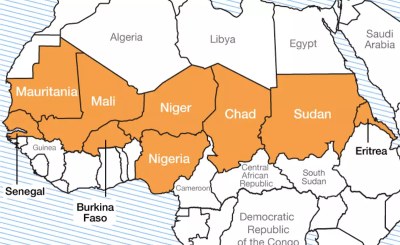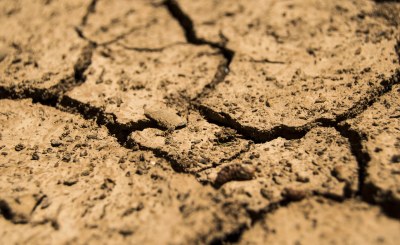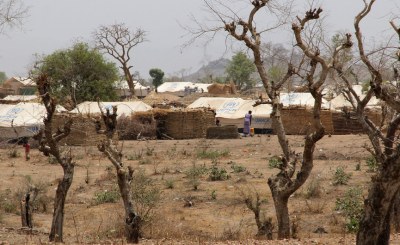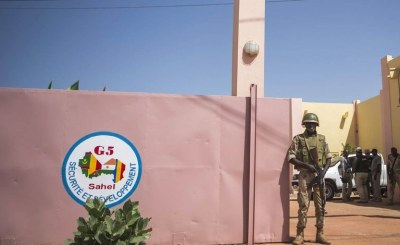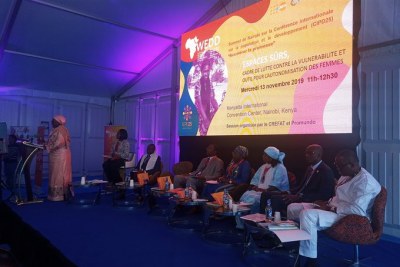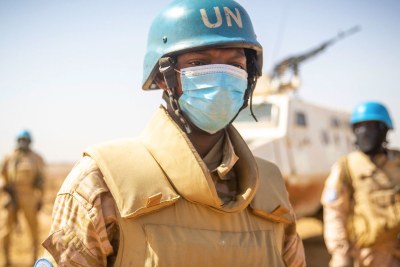-
West Africa: Herder-Farmer Conflict in the Sahel Needs a New Description - Why 'Eco-Violence' Fits
The Conversation Africa, 12 July 2022
The Sahel - a 5,000km long strip of the African continent stretching from the Atlantic coast to the Red Sea - has become the most neglected and conflict-ridden part of the planet.… Read more »
-
Africa: Deteriorating Hunger Situation an Urgent Crisis for Millions Caught in Conflict
ICRC, 12 July 2022
Hundreds of millions of people are at risk of severe hunger in the coming months as extreme poverty, inequality and food insecurity rise, particularly in parts of Africa and the… Read more »
-
Africa: Calls for Meaningful Data to Address the Increasing Number of Disasters in Africa
African Union, 22 June 2022
Data collection for the 2ndAfrica Biennial Report on Disaster Risk Reduction (DRR) exercise officially kicked off, with the East African Community (EAC) and the Inter-Governmental… Read more »
-
West Africa: Multiple Crises Threatening Stability and Development in Sahel - World Food Programme
VOA, 3 July 2022
The World Food Program warns conflict, climate change, COVID-19, and skyrocketing prices of food, fuel, and fertilizer are further threatening stability and development prospects… Read more »
-
Africa: Terrorism Affects Socio-Economic Life of Some Countries - Ghana Minister
Ghanaian Times, 5 July 2022
Some African countries are bearing the brunt of terrorism to the extent that it has affected social and economic life in those countries, Albert Kan-Dapaah, Minister of National… Read more »
-
West Africa: Greater Democratic Rule Vital to Boost Security, UN Security Council Told
UN News, 7 July 2022
Democratic and responsible governance is needed to counter ongoing insecurity in West Africa and the Sahel, the UN Special Representative for the subregion told the Security… Read more »
-
West Africa: ECOWAS Discusses Disaster Recovery Priority Areas
Ghanaian Times, 6 July 2022
A regional workshop on disaster recovery priorities for 15 member states of ECOWAS begun in Accra yesterday. Read more »
Conflict in Africa's Sahel Needs a New Description
The Sahel region stretches from Senegal in the west through parts of Mauritania, Mali, Burkina Faso, Niger, Nigeria, Chad and Sudan to Eritrea on the Red Sea. Arabic, Islamic and nomadic cultures from the north meet traditional cultures from the south.
According to reports, around 11,276 people have been murdered in Mali, Niger and Burkina Faso since 2012. In the first six months of 2022 alone, about 2,057 people had been killed in the three countries.
Thomas Stubbs and Olumba E. Ezenwa write for The Conversation that the conflicts between herders and farmers over water and grazing opportunities have been going on for decades. But they intensified during and after the droughts of the 1970s and 1980s when nomadic Fulani herders moved into communities where they had not grazed their animals previously.
Using terms like "land-use conflicts" makes it sound like disputes are only caused by competition over agricultural resources. The relevance of land goes beyond being a means of survival. It is a symbolic religious tool that links the past, present and future in most African communities. Land is used for burial and the dead are revered ancestors.
Conflicts over land in Mali and Ghana have been called "ethnic violence". Such labels imply that the ethnic composition of the disputing parties may be the source of conflict. That a conflict is fought between two distinct ethnic groups does not always imply that ethnic diversity is at its root. The terms used may be hindering understanding of the causes.
There is a proposal that the term "eco-violence" should be used instead. It is neutral and takes the focus off the identities of the conflicting parties and what they do.
InFocus
-
After five years of implementation, the Women's Empowerment and Demographic Dividend in the Sahel program is producing satisfactory results. Authorities of the beneficiary ... Read more »
-
Millions of hectares of farmland are lost to the desert each year in Africa's Sahel region, but the UN Food and Agriculture Organization (FAO) is showing that traditional ... Read more »
-
Conflict and peace-building in Africa were on the agenda of United Nations meetings on May 18 and 19, 2021. Ahead of a UN Security Council meeting on May 19, preparatory ... Read more »
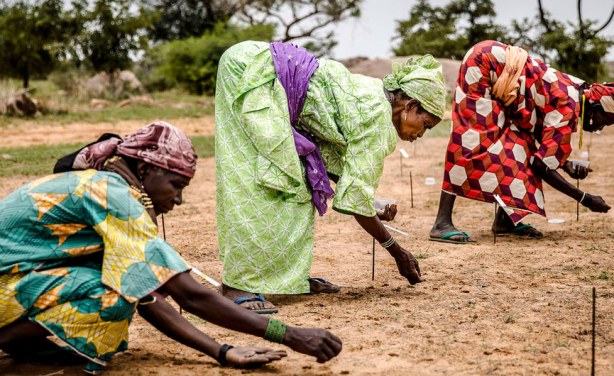
Women plant seeds while taking part in a Sahelian plant and reforestation project in Niger (file photo).
